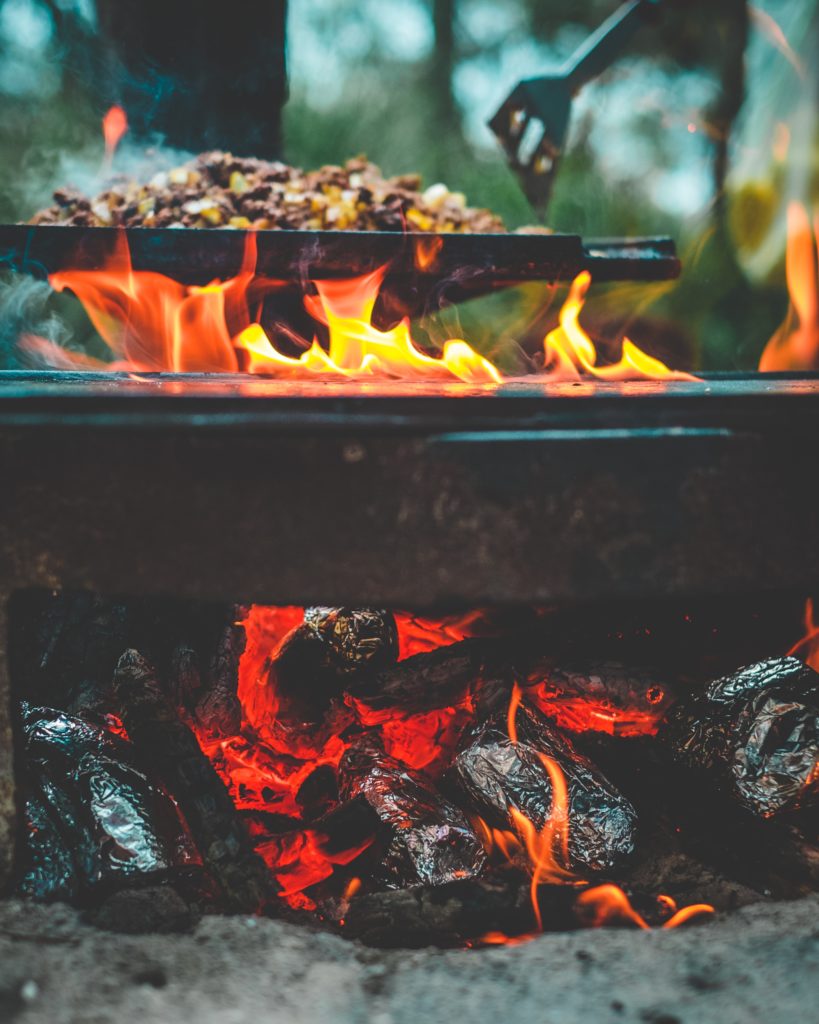All fields are required
Posted in E. coli,Food Safety on June 30, 2018

With summer here to stay for the next few months, people are preparing to soak up in the sun as much as possible by going on camping, going for a hike, or just engaging in the most simple and popular activity of all – grilling.
But, as the barbecue grills start to come out, so do the bacteria that multiplies in your food — sadly, at a much faster rate in the summer heat. This makes practicing good food safety behaviors even more crucial. In fact, food poisoning illnesses increase during the summer months.
Want to stay healthy?
Here are a few simple guidelines that can prevent you from any unpleasant food poisoning.
Get Ready to Grill Safely!
Buying and Storing Meat
When you are grocery shopping, it is a good idea to buy your cold foods at the end of your shopping. This will help keep bacterial growth in raw meats to a minimal rate. While you are at it, keep raw meat separate from other grocery items. It is a good idea to store them at the bottom of your shopping cart. When you get home, refrigerate cold items as soon as possible, especially in warmer weather. Store the meats separately in the refrigerator. Freeze them if you do not plan to use them in a day or two.
Preparing the grill
When you take out your barbecue grill, clean it out thoroughly. Make sure there is no residue left. Make sure that the grill is steady on a level surface and is away from plants and trees. According to the advice of several fire experts, the coals should have a depth of no more than 5 cm. Ensure all the fittings are correctly tightened, before you light anything.
Make sure to use the barbecue in a well ventilated area and never use gasoline on your barbecue.
Marinade
Marinate the meat in the fridge and not at the room temperature. Don’t reuse the marinade, as this could cause illness. And the most important point is not use to marinade as a sauce or use it on your food. It should be disposed of immediately.
Thawing
It is crucial to thaw the meat thoroughly before grilling as this would ensure proper cooking of the food. Therefore, you should make sure that you plan ahead for thawing. Meat should be thawed in the refrigerator. You can also thaw sealed packages in cold water.
If you are thawing using a microwave, then the thawed meat should be grilled immediately.
Cooking
Cooking is the most important step, as the nasty foodborne illness-causing bacteria, viruses, and parasites get completely killed by proper cooking of meat, poultry, and fish. You can also pre-cook foods on the stove to reduce the grilling time. Foods should go to the grill immediately for complete cooking.
Here is a list of optimum cooking temperatures you should take note of while preparing food at time.
Note: Color is not a reliable way to indicate that meat is properly cooked. Therefore, you should always use a meat thermometer to check the temperature!
| FOOD | SAFE INTERNAL TEMPERATURE |
| Chicken and Turkey, whole or parts | 165℉ |
| Ground Poultry | 165℉ |
| Ground beef, veal, pork, lamb or venison | 160℉ |
| Fresh beef, veal, pork, lamb or venison | 145℉ |
| Fish | 145℉ |
| Eggs | Until both white and yolk are firm |
| Egg Dishes | 160℉ |
When reheating fully cooked meats, you should grill them to 165℉.
Keep Hot Foods Hot
After cooking meat, poultry, or fish on the grill, you should keep their holding temperatures at 140℉ or warmer until they are ready to be served. All the cooked meats should be kept hot by keeping them at the side of the grill rack. You can keep the cooked meats hot inside an oven or on a warming tray. In hot summer weather (90℉ or more), food should not be allowed to sit out for more than one hour.
Leftovers
Cool foods down and store them in the refrigerator separate from raw meats. All the cooked meat, poultry, and fish should be stored safely without any chance of cross-contamination. Do not store any leftovers that have been kept at room temperature for more than 2 hours – or longer than an hour in temperatures of 90℉ or more.
Even though we have gone through common guidelines, let’s quickly go over some of the most COMMON ‘food safety’ mistakes that risk illnesses:
Raw meat has the possibility of spreading germs such as Salmonella, E.Coli, Campylobacter etc. Even though mild food poisoning will completely go away within a week but it is still a nasty experience. Therefore, it is better to stick to some minor food safety guidelines to help prevent any illness to you or your family.
By: Pooja Sharma, Contributing Writer (Non-Lawyer)